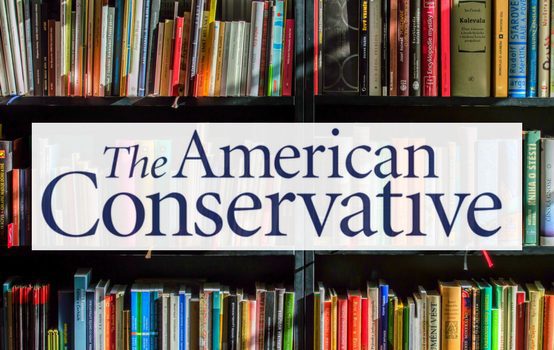TAC Bookshelf: Nietzchean “Will to Power” Meets the Puritans

Casey Chalk, TAC contributor: In recent years, I’ve frequently been party to a very odd sort of complaint—both because of the identity of the complainant and the nature of the gripe itself. The complainer is typically a highly educated, professionally successful, young, white woman. Her complaint is that a patriarchal system dominated by “old white men” is the source of her troubles and the reason she hasn’t realized her personal and professional aspirations. This despite the fact that the very woman making the complaint is wealthy and highly successful, more so than many of the targets of her disdain.
What educational or personal experience could persuade technocratic elites, who themselves yield significant political and cultural power, that they are the victims of some unjust power play, and that the remedy for this injustice is the extirpation of a particular racial and sexual demographic? Patrick Henry College professor Mark T. Mitchell offers an answer in Power and Purity: The Unholy Marriage That Spawned America’s Social Justice Warriors. Two seemingly opposite paradigms—the Nietzchean “will to power” and the moral rigorism of Puritanism—have become unlikely bedfellows, birthing what are now commonly labeled “SJWs.”
Even if most Americans have never read Nietzche, the 19th-century German philosopher’s thought has become pervasive throughout Western thinking. Our nation’s undergraduates are told that the very things once believed central to American prosperity—stable nuclear families, a Judeo-Christian worldview, an education in the Western tradition—are all examples of cynical power plays whereby certain people (hint: white Christian males) exert dominance over others. Fathers weren’t humble, virtuous men who provided for their families and contributed to the polis; Christian leaders weren’t selfless heroes trying to love and serve their neighbors; America’s founders weren’t trying to cultivate a society based on freedom and virtue. No, they were all trying to aggrandize themselves at the expense of the weak and powerless. The idea that power is the central force underlying human interactions is pure Nietzsche.
Puritanism is less intuitive, given that its manifestation in the Massachusetts Bay Colony derived from a devoutly religious, patriarchal people. Yet as Mitchell rightly argues, the moralism and rigorism of the Puritans have remained essential to American society, even as it grows increasingly secular. Today’s “puritans” seek to cleanse our nation’s institutions of all who do not adhere to their woke understanding of truth and justice (i.e. identity politics, sexual libertinism, and LGBTQ ideology).
Marry those two ideologies, and it’s easy to understand how they influence women like those I cited above, or the broader self-righteous aggressiveness of the SJW movement. And boy, is it toxic. Consider the comments of Georgetown University’s Christine Fair, who during the Kavanaugh hearings claimed that the “entitled white men…deserve miserable deaths while feminists laugh as they take their last gasps.” Such rhetoric, to say the least, is a bit ironic. I don’t remember ever reading Adams, Madison, or Jefferson talking that way.
Comments